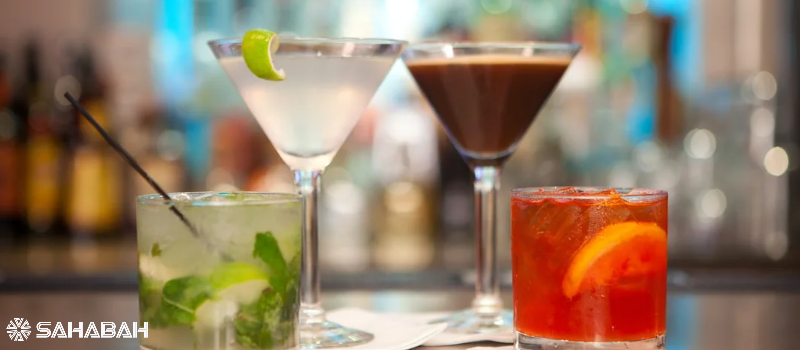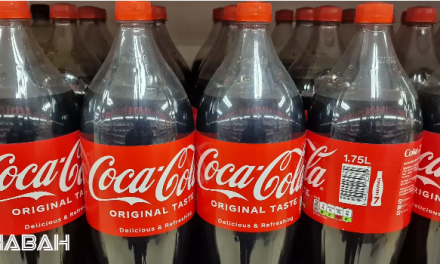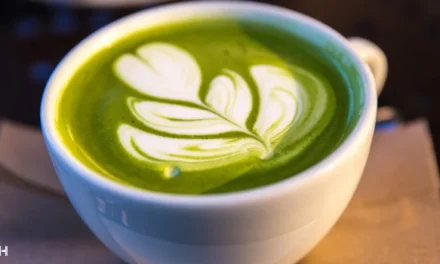Arak, a strong anise-flavored alcoholic spirit prominent across the Eastern Mediterranean, holds a complex standing within Islamic law. This iconic Levantine drink closely ties to rich Arab culture yet contains high levels of alcohol that pose clear issues from an Islamic dietary legal perspective.
In this comprehensive guide, we’ll cover the key questions around Arak and halal status:
- What exactly is Arak and how is it produced?
- What precedents in Islamic law address intoxicants like alcohol?
- Is there scholarly consensus or debate on Arak’s permissibility?
- Could contingent exceptions allow Muslim consumption of Arak?
- What alternatives can substitute for Arak’s characteristic flavor?
Exploring these facets in detail provides a definitive answer on whether this popular regional beverage is permissible in Islam.
Defining Arak and the Process of its Production
Arak is a distilled alcoholic spirit typically containing 40-63% alcohol by volume. It’s popular across the Eastern Mediterranean – especially Syria, Lebanon, Jordan and Palestine. Arak means “sweat” in Arabic, referring to condensation dripping from traditional copper stills during the distillation process.
The production process involves fermenting grape juice or fruits like dates and figs. Aniseeds provide added depth with aromatic qualities reminiscent of licorice, fennel and tarragon.
The key components of Arak are:
- Grapes, dates or figs: Primary source of sugars for fermentation
- Aniseeds: Provide the distinctive sweet flavor
- Yeast: Active cultures to convert sugar into alcohol
- Use of copper pot stills for distillation
The resulting clear liquid has a translucent milky-white hue with a smooth yet strong taste profile.
Unlike wine, beer or cider, true Arak requires high alcohol levels created via thorough fermentation and purification. So Arak’s signature flavor directly stems from production methods that seem problematic from an Islamic legal perspective.
Precedents on Alcohol and Intoxicants Within Islamic Law
The Islamic position on alcohol stemming from the Qur’an and teachings of the Prophet Mohammed (PBUH) is clear.
Several Quran verses directly state that intoxicating substances are prohibited:
“O you who have believed, indeed, intoxicants, gambling, stone altars and divining arrows are but defilement from the work of Satan, so avoid it that you may be successful.” (5:90)
This is widely interpreted to forbid all substances causing diminished faculties, including alcoholic drinks like wine, beer and spirits derived from otherwise permissible base ingredients like grapes or dates:
“They ask you about wine and gambling. Say, in them is great sin and benefit for people. But their sin is greater than their benefit.” (2:219)
There are also various hadith where Prophet Mohammed (PBUH) declared alcoholic drinks emphatically unlawful:
“Every intoxicant is prohibited”
So from a legal Islamic precedent perspective, the verdicts against alcohol consumption seem definitive. This suggests drinking potent distilled spirits like Arak constitutes a haram or religiously forbidden act.
However, we’ll explore how disagreement still arises among certain Islamic legal experts regarding these Arak rulings despite the ostensibly clear scriptural foundations around alcohol.
Is There Consensus Among Islamic Scholars That Arak is Haram?
Despite explicit religious guidance about alcohol’s impermissible status, debate still occurs among Islamic legal scholars on Arak’s halal standing given its origins from grapes, dates or figs.
Some strict traditionalists argue that fermentation of the raw ingredients causes a complete molecular transformation. So the resulting alcoholic Arak takes on an independent impermissible designation disconnected from the originally permissible base components.
However, others counter that ingredients like grapes, dates and aniseed are themselves halal or religiously permissible substances. Thus their derived liquids should not warrant differing religious designations.
Yet most experts acknowledge that even trace amounts of ethanol exist in all potently alcoholic drinks like Arak produced via thorough distillation concentrating alcohol beyond levels naturally found in fruits or bread.
And there is unanimous agreement that intentionally pursuing intoxication for recreational purposes through such drinks is indisputably haram based on the Prophet’s clear guidance.
So aside from rare medical necessity exceptions, Islamic scholars hesitate to broadly permit strong distilled spirits deliberately manufactured like Arak to induce inebriation through higher alcohol volumes.
Detailed Positions Among Islamic Schools of Thought on Arak
Despite overall consensus that regular drinking of distilled liquors like Arak crosses Islamic bounds, minor disagreement exists around potential nuances or rare exceptions.
Views Among the Major Legal Traditions in Islam
Hanafi School
- Most flexible opinion
- Permits very limited intoxicant quantities if not consumed deliberately to achieve drunkenness
Maliki School
- Prohibits intoxicants categorically but allows medicines with trace alcohol if no substitutes exist
Shafi’i School
- Any substance that causes intoxication in large amounts is forbidden (haram) in any quantity
Hanbali School
- Strictest stance forbidding any intoxicating substances outright regardless of amount consumed
Ja’fari School
- Equates drinking any amount of intoxicating substances as a reprehensible sin unless facing dire need
So we see the jurists take a narrow line regarding what might constitute an extreme temporary exception but overall forbid recreational drinking of potable distilled spirits like Arak.
Perspectives Among Prominent Islamic Theologians
Ibn Taymiyyah
- 13th century influential scholar sees alcohol as categorically prohibited regardless of source
Imam Malik
- 8th century Maliki school founder prohibited all alcohol due to its intoxicating effect
Omar Khayyam
- 11th century Persian poet took more relaxed view on wine but discouraged overindulgence
So traditional religious authority falls strongly against regular internal consumption of intoxicants, especially distilled liquors. But a bit more flexibility appears for medical applications.
Are Any Contingent Exceptions Made For Consuming Arak?
The most pronounced disagreement among Islamic experts lies around whether highly narrow exemptions could exist for drinking distilled spirits like Arak.
Most conservative scholars forbid Muslims drinking Arak in any context beyond severe medical emergencies without alternatives. They cite Prophet Mohammed (pbuh) explicitly banning all intoxicating drinks. Critics argue this rigid viewpoint lacks nuance for complex real-world scenarios.
More moderate scholars contend tiny diluted Arak quantities thoroughly cooked down could suffice to reduce residual traces of alcohol below intoxicating floors not acutely dangerous or addictively habit forming.
However, they caution such contingent concessions remain extremely restricted and cannot condone general recreational drinking of Arak in its pure spirited formulation. This middle ground stance tries balancing religious principles and pragmatic flexibility.
Weighing the mainstream jurisprudential precedents against pragmatic allowances shows Islamic law takes a stringent position on potable alcohol but leaves tiny space for severe extenuating circumstances through a strictly regulated exception framework – albeit one not extending to common social consumption of distilled Arak.
Alternatives to Enjoying Arak’s Characteristic Taste Without Alcohol
Several options allow enjoying Arak’s aniseed richness without actual alcohol consumption:
Non-Alcoholic Beer or Wine: Manufacturers like St. Regis Group produce specialized booze-free Arabic wines and beers that closely mimic Arak’s bouquet.
Sharbat: These concentrated non-fermented fruit juices like pomegranate or date syrup mixed into water or soda provide sweet fruity notes similar to wine minus alcohol.
Sobia Drinks: Sobia blends salty tamarind seed extract with date or carob syrup added to water for a distinctive flavor profile resembling Arak without haram ingredients.
Anise Teas and Sodas: Herbal anise seed teas or anise-flavored sodas like Palestinian Rim soda offer light licorice-esque taste forming a solid base for sophisticated mocktails able to mimic Arak’s characteristic bite.
The key is enjoying the full culinary essence of Arak’s distinctive flavor nuances without actually consuming this prohibited high-proof alcoholic spirit itself through creative substitutions.
Conclusion: Why Most Muslims Consider Drinking Arak Impermissible Under Islamic Law
Based on clear Quranic verses banning intoxicants categorically and the Prophet’s recorded cautionary warnings, mainstream Islamic law deems imbibing the popular Levantine alcoholic spirit Arak as religiously prohibited (haram) for faithful Muslims outside rare extenuating circumstances.
However, even strict scholarly interpretations acknowledge natural trace alcohol exists within certain foods and drinks from otherwise halal ingredients like grapes.
So we again see Islam’s balanced middle path emerges – allowing enough reasonable flexibility for unique real-life situations but still drawing firm lines against intentionally pursuing intoxication through high-alcohol drinks like Arak designed predominantly for that recreational purpose without religiously valid necessity.
Frequently Asked Questions – Is Arak Halal
What is Arak?
Arak is a Middle Eastern alcoholic beverage that is often compared to anise-flavored liquors such as Ouzo or Pastis.
Is Arak permissible in Islam?
The consumption of Arak, like all alcoholic beverages, is considered Haram in Islam. It is advised to avoid its consumption as it contains alcohol which is prohibited in Islam.
How does the creation process of Arak differ from other alcoholic beverages?
Arak is made by distilling grapes and aniseed. The distillation process is similar to that of other alcoholic beverages, resulting in the alcohol content present in the final product.
Why is Arak compared to liquor and cocktails?
Arak is often compared to traditional liquors and cocktails due to its taste and the way it is consumed. It is known for its strong alcoholic content and anise flavor, making it similar to other alcoholic drinks.
Is Arak consumption restricted to specific regions or cultures?
Arak is a popular alcoholic beverage in the Levant region, especially in Lebanese, Syrian, and Israeli cultures. However, it is also consumed in other parts of the world where it is available.
Are there any exceptions to the prohibition of Arak in Muslim countries?
Despite being popular in some Middle Eastern countries, the consumption of Arak is generally prohibited in Muslim countries due to its alcoholic content, which is considered Haram according to Islamic teachings.
Can experts in Islam provide a definitive answer regarding the permissibility of Arak?
For specific religious rulings or inquiries about the consumption of Arak or any intoxicants, it is recommended to seek guidance from scholars or religious authorities knowledgeable in Islamic teachings, such as through platforms like Islam Stack Exchange.
Is the use of pure alcohol in the production of Arak considered Halal?
The use of alcohol, even in the production process of Arak, is not permissible according to Islamic teachings. The presence of alcohol in any form makes the end product Haram for consumption.
Does the Quran or Hadith specifically mention the prohibition of Arak?
While the Quran and Hadith specifically mention the prohibition of alcohol, the mention of specific alcoholic beverages like Arak is not present. However, the general prohibition on the consumption of alcoholic beverages encompasses Arak as well.
What are the alternatives recommended for those who traditionally consume Arak?
For individuals seeking alternatives to Arak, there are non-alcoholic beverages available that offer similar anise flavor profiles without the presence of alcohol. These options are permissible to consume and align with the teachings of Islam.





